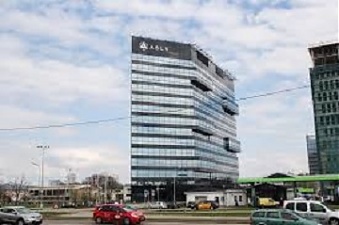Banks, Financial Services, Investments, Latvia
International Internet Magazine. Baltic States news & analytics
Friday, 26.04.2024, 17:29
Nasdaq Riga applies observation status to ABLV Bank
 Print version
Print version |
|---|
Observation status will be applied according to Nasdaq Riga rules, which
stipulates that the issuer shall be placed on the observation list if other
circumstances influencing the issuer’s activity have occurred which may
threaten the interests of the investors, and in cases when it is important to
turn the attention of market participants to a circumstance related to the
relevant financial instrument or its issuer.
"We are informed about the decision made by the stock exchange. It is
a standard procedure that the stock exchange applies, and it does not impose
any restrictions. It is a way to inform investors and attract their attention
about the issuers. ABLV Bank
currently meets all its obligations in relation to bonds, and the report of
FinCEN does not affect the holders of the bonds. Once more we confirm that the
financial condition of the bank and adequacy of financial resources are
sufficient," said ABLV Bank’s
spokesman Arturs Eglitis.
As reported, the Financial Crimes Enforcement Network (FinCEN) of the U.S.
Department of Treasury has proposed sanctions against ABLV Bank for its role in money laundering schemes that have been
facilitating transactions for parties connected to North Korea’s nuclear
program and illegal activities in Azerbaijan, Russia and Ukraine.
FinCEN also said in its report that the management of ABLV Bank used bribery to influence Latvian officials when
challenging enforcement actions and perceived threats to their high-risk
business.
According to the FinCEN report, ABLV
Bank’s business practices enable the provision of financial services to
clients seeking to evade financial regulatory requirements. Bank executives and
employees are complicit in their clients’ illicit financial activities,
including money laundering and the use of shell companies to conceal the true
nature of illicit transactions and the identities of those responsible.
The bank’s representatives, meanwhile, said that Latvia’s ABLV Bank and its officials have never
given any bribes, therefore the bank finds the report released by FinCEN
utterly unacceptable.
The bank has turned to the law enforcement institutions – the Corruption
Prevention Bureau and the State Police – asking them to probe the statements
voiced by FinCEN. "Neither the bank, nor the bank’s employees have ever
given any bribe to any state official,” said Reinfelds, adding that such grave
accusations seriously harm the bank’s reputation.
Representatives of ABLV also indicated that the FinCEN report is the
department’s proposal which can be objected to within 60 days. The Latvian bank
is currently weighing its options as it hopes to persuade FinCEN to revise its
proposal. "The bank will make every effort to disprove the
allegations," the bank said.








 «The Baltic Course» Is Sold and Stays in Business!
«The Baltic Course» Is Sold and Stays in Business!

